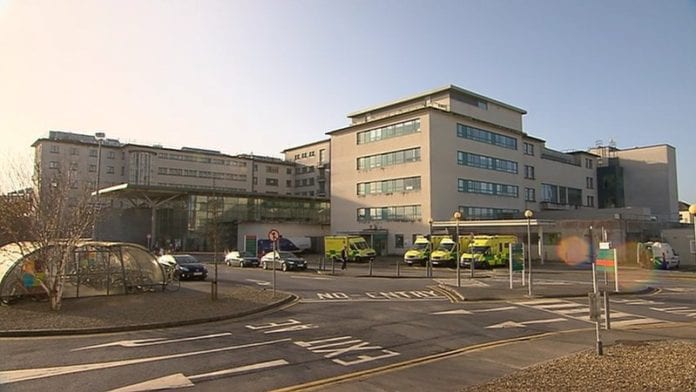A study by Galway researchers has found that a third of A&E admissions on Saturday night and Sunday morning are caused by alcohol.
Researchers from NUI Galway, University Hospital Galway, and HSE West collaborated on this study of admissions at every emergency department in Ireland.
Staff at Ireland’s 29 hospital emergency departments analysed patient charts every four to six hours and made a note of who was presenting with alcohol related issues, and found that there was a massive jump around Saturday evening.
Throughout the rest of the week 5.9% of A&E admissions can be traced back to alcohol, a huge drop compared with the weekend but still more than 1 in 20 patients coming to the emergency department.
Dr. Brian McNicholl, Consultant in Emergency Medicine at University Hospital Galway and one of the authors of the study said: “We know alcohol is a problem in Emergency Departments at certain times but we need to know more about this to work out what needs to be done.
“The people coming to us with alcohol related presentations are more likely to be male, arrive by ambulance, leave without being seen by a doctor, and to leave against medical advice,” he added.
The Emergency Department at UHG has been struggling to handle increasing numbers for many years now while plans progress for construction of a new A&E.
During a visit to UHG in April, An Taoiseach Leo Varadkar promised to work to ensure the new Emergency Department for Galway is fast tracked.
Dr. Diarmuid O’Donovan, Director of Public Health in the HSE West and Senior Lecturer in Social and Preventive Medicine at NUI Galway, who also co-wrote the study said that alcohol is serious burden on emergency department resources.
“We need to do more to prevent alcohol related harm, and to have better services for people who have alcohol problems so that people don’t end up in Emergency Departments and ambulances.”
According to Dr. O’Donovan people with alcohol related emergencies are four times more likely to arrive at the hospital by ambulance.
People in Connemara have been protesting an “ambulance crisis” in the West of Galway for several years now, where anyone calling for an ambulance could have to wait up to three hours, more time than many people have in an emergency situation like a heart attack or stroke.
The full study has been published in the publicly accessible journal BMJ Open.











